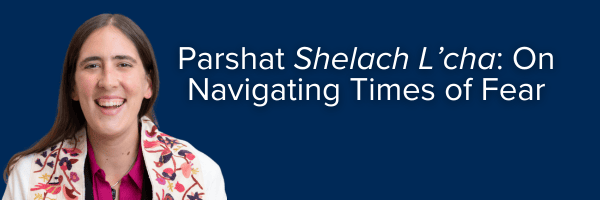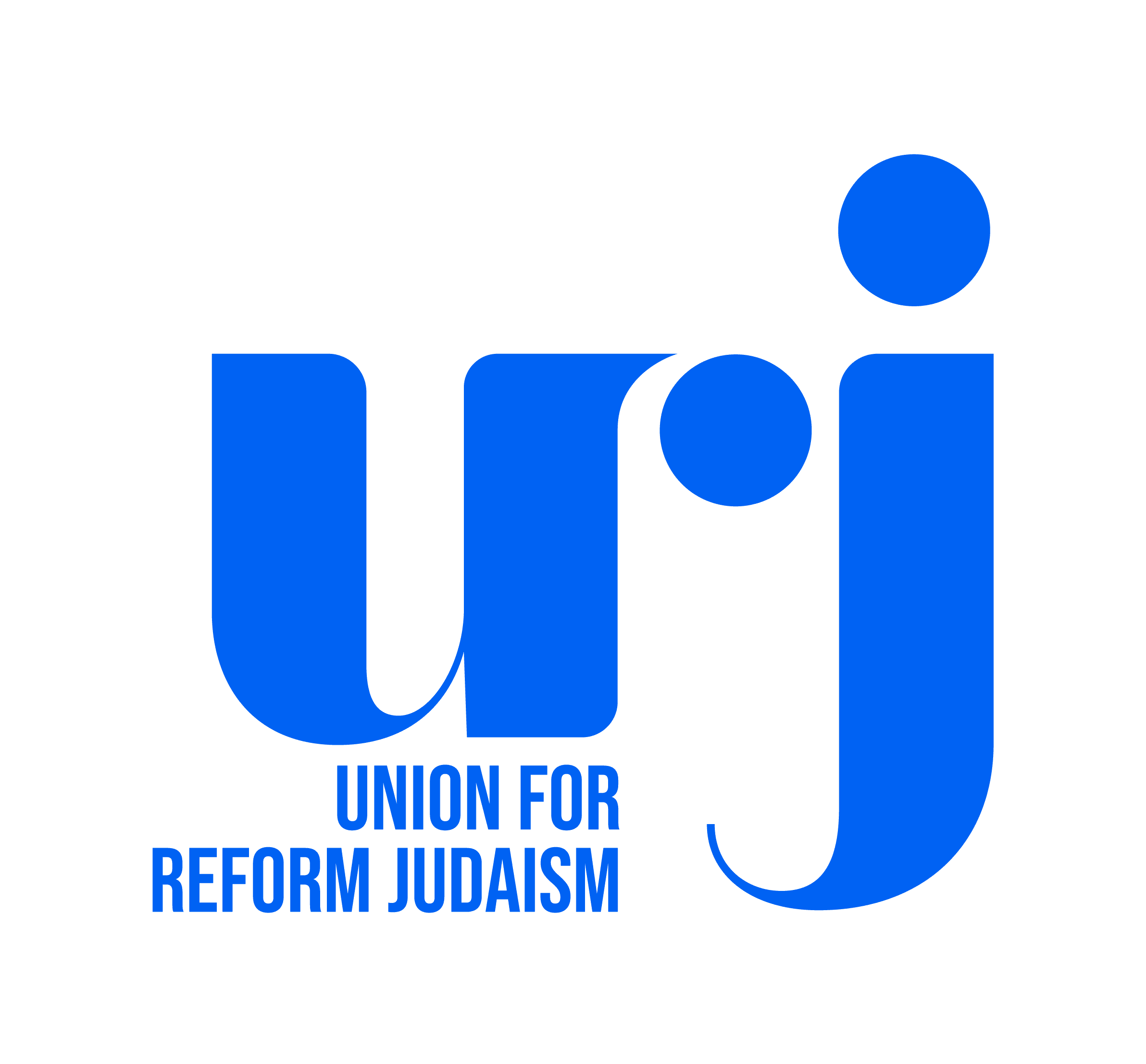This week’s Torah portion, Shelech L’cha, is often read (in part) as a parable about the danger of giving into your fears. In the portion, the Ancient Israelites are lined up on the edge of the Promised Land, and twelve scouts are sent in to explore. They come back with mixed reports: they all agree that the land is full of natural resources and opportunity, but ten of them are also frightened of the people in the land, who they call giants. They say, “we were, in our own eyes, like grasshoppers, and that’s how we were in their eyes, too” (Numbers 13:33).
The ten scared scouts convince the people that it’s too dangerous to enter, and eventually, God announces that instead of moving forward, this generation will spend the rest of their lives in the wilderness. Only their descendants (led by the two scouts who were not afraid to move forward, Joshua and Caleb) will be allowed to enter. And so the Israelites wander the wilderness for another 38 years.
I have long found this Torah portion very moving, and an important reminder that our assumptions about ourselves and others can sometimes hold us back in ways they don’t need to. But this year, in the face of so many fearful events in our world, I also found it challenging in a new way.
Because this year, like the ten scouts, I am very worried: worried for friends and loved ones in Israel, and for civilians all around the world who are currently in harm’s way as multiple wars rage on; worried for our country, for too many reasons to count; worried, worried, worried.
And the ten scared scouts seem much more relatable than they sometimes do.
What do we do when, like the scouts, we’re experiencing fears and doubts that we know we might be giving a little bit too much credence, but that we also know are more or less reality-based? Fears we don’t want to allow to freeze us, and stop us from living, but fears that we think might be worth paying a bit of attention to, all the same?
One of Judaism’s teachings is that in low moments like this, it can be helpful for us to connect to others – not to stoke each other’s fears (as happens in Shelach L’cha, when the fearful people transform into a fearful mob in which Moses and other leaders are almost killed), but to gain courage, and wisdom. And so here, in that spirit, are the words of my good friend, Rabbi Rebecca Hecht, in a reflection she offered last fall. She is writing, here, about the famous Rabbi Nachman quote, “the whole world is a very narrow bridge, and the most important part is not to be afraid.” She says in part:
Of course I have irrational fears, and fears that confine me. But I also think my fears … are real, and valid, and not going to just go away simply if I am not afraid, if I just remember, as Rebbe Nachman is often quoted, that “the most important thing is to not be afraid.
This is how his teaching is remembered, but the thing is – Rebbe Nachman DID NOT teach us to be unafraid. Rabbe Nachman actually said that the ikar, the most important thing, is shelo yitpached klal. He uses the same word pachad as in the song, but in a different Hebrew construction, the reflexive yitpached. He’s not saying “don’t be afraid at all,” – he’s instead saying, “don’t be done in by fear.” Don’t let fear become everything. And that, I think, is a far more reasonable expectation. As James Taylor sings, “it’s okay to be afraid. Don’t let that stand in your way.” There’s a lot to fear. But don’t let fear subsume you. Don’t let fear define you.
What I want to do is to allow myself to be afraid, but not to despair. Despair is the absence of hope, the belief that there is no use trying to imagine or create the future you seek. But fear, I think, can walk hand in hand with hope. They are both emotions of uncertainty and possibility.
This week, I am praying that we and people all around the world can find ways to be open to uncertainty, and to possibility. And as we mark both Juneteenth and Pride Month, I hope we can find many opportunities to learn about the work of those who have dedicated their lives to making our country and our world a more just place for all. I hope we can recommit to walking in their footsteps.
Shabbat Shalom,
Rabbi Alexandra Stein


